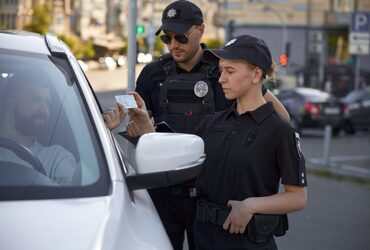Search

You must have received an unsavory ticket but you should resist accepting it without any opposition. You have the opportunity to contest your speeding ticket at court through legal channels when you believe your citation was unjust or other conditions should be taken into account. This guide provides important steps for ticket defense that improve your likelihood of test victory.
Review the ticket contents with extra attention.
Note: You should note the exact speed shown on your citation and the speed restriction indicated at that location. The speed limit that was officially displayed at that location can be found on the posted signs. The ticket shows where the offense occurred together with the time stamp and precise date. The process that law enforcement used for the speed measurement involved radar technology or another tool such as pacing and LIDAR. All law enforcement details mentioned on the ticket become vital as your defense strategy develops.
Examine the ticket document for any possible mistakes. Small misprints on the ticket do not mandate case dismissal yet they can help demonstrate police inattentiveness if you combine them with other key points of defense.
The quality of your defense depends solely on the evidence you have obtained. Here’s what you might collect:
Weather elements together with unfavorable road conditions possibly affected your driving pattern. GPS monitoring through certain apps can track your speed together with your location path. Solid proof becomes more effective when you gather multiple concrete sources.
Research your state’s traffic laws. Look into: A full understanding is needed about the prospective speed violations found within that particular area. Nevertheless, the law may enable exemption under particular circumstances which include emergency medical situations or protective actions against potential accidents.
Common defenses include: You have legal grounds to speed up to prevent accidents or when dealing with actual medical needs. The criminal speedometer provided incorrect data as a result of improper calibration or environmental obscuration. Looking at the wrong vehicle speed was believed to belong to yours by the officer. Having memory issues from the officer proves valuable by demonstrating their lack of recollection for evidence.
So, if you plan on taking the fight to the ticket you will first need to plead ‘not guilty’ and ask for a court hearing. In some states, you can do this online or by mail, but in others, you will have to swing by in person.
Before court:
Dress neatly and arrive early. When it’s your turn:
If your ticket is going to earn you steep fines, or hikes of your insurance, or even license points then it is worthwhile going to visit a traffic attorney. It is advisable to take advice from some who offer free consultations and they can also tell you if your case is strong enough to fight.
Fighting a speeding ticket in court is not out of the question, but you will never win doing it by yourself. With the proper preparation, evidence, and mindset you can make a solid case that caries enough weight to not only be a factor in reducing your penalties, but may even have the ticket dismissed altogether. Consequently, whether you win or lose, rising up to defend your right is a stride to progress toward becoming a keener and a stronger driver.